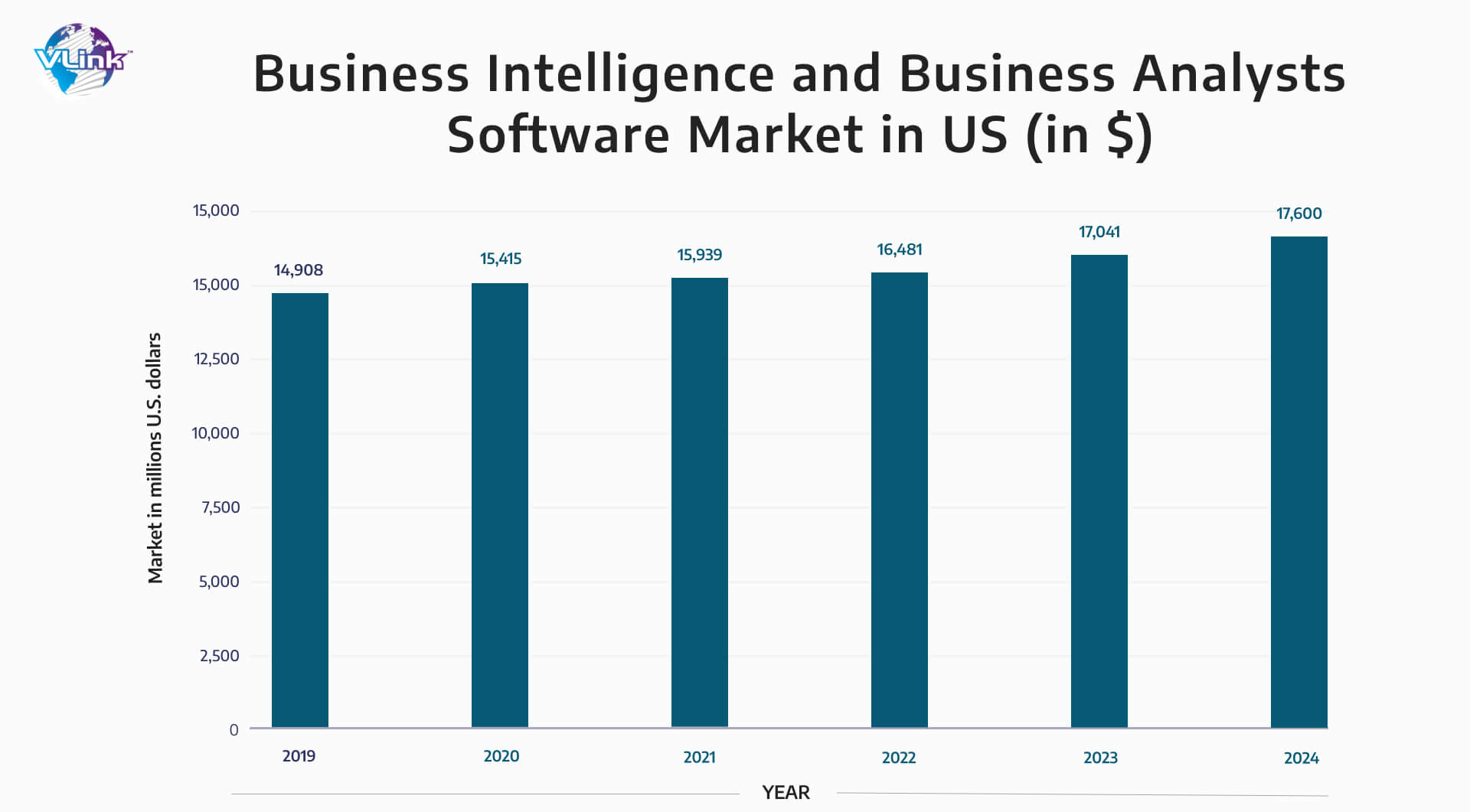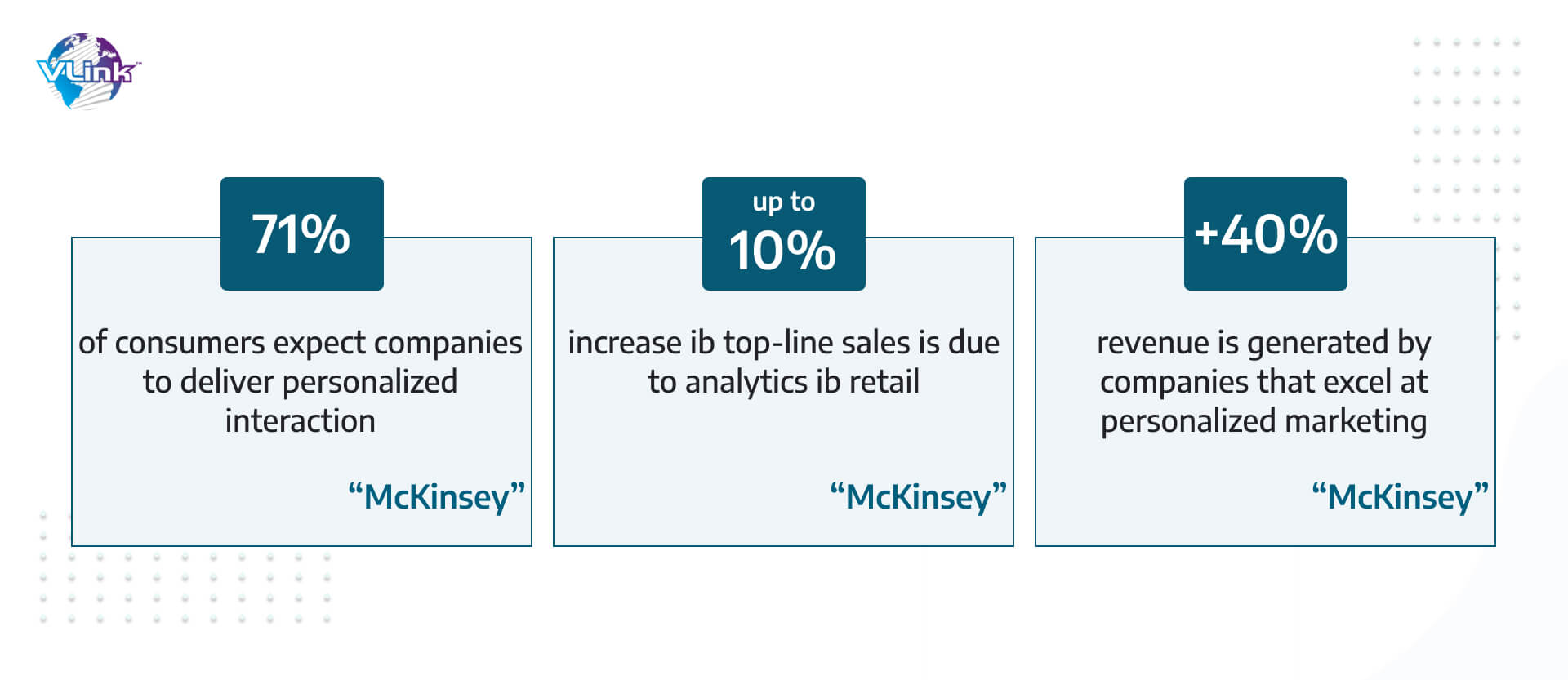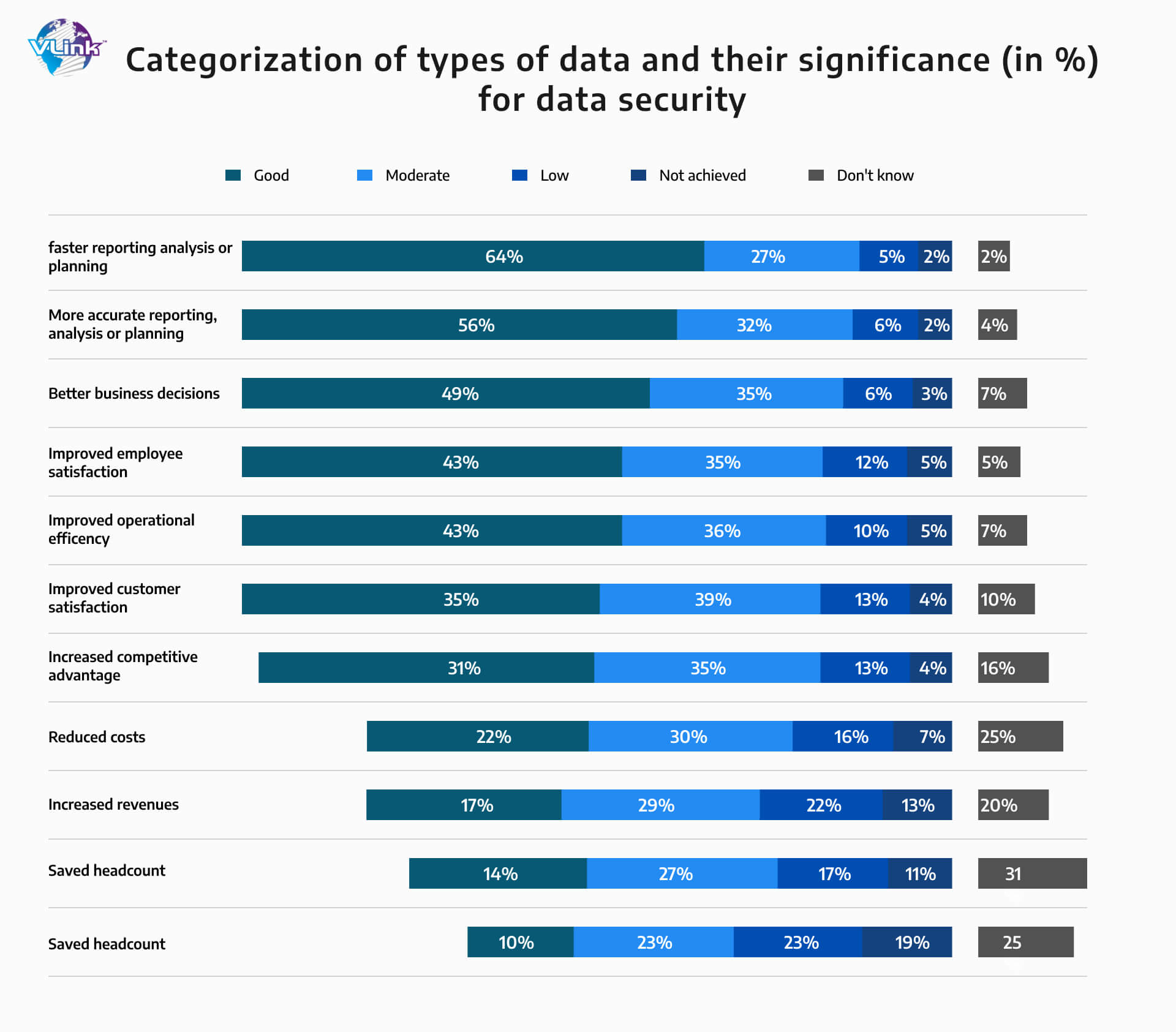Retail is one of the most data-driven industries worldwide. And (BI) Business Intelligence has become an essential tool in this sector, allowing businesses to make informed decisions and get better outcomes. It helps retailers to understand customer behavior, determine inventory requirements and build forecasts.
A survey revealed that 58% of the respondents considered BI essential for the retail sector
With the global business intelligence software market projected to reach $17.6 bn in 2024, BI can benefit the retail industry.

In this blog, you will explore the role of business intelligence in retail business and how BI solution benefits the retail industry.
What is Retail Business Intelligence?
Retail Business Intelligence is collecting, analyzing, and interpreting data from various sources within a retail organization to gain actionable insights and make informed decisions. It involves leveraging data to understand customer behavior, optimize inventory management, track sales performance, and identify trends and patterns.
Retail BI employs advanced analytics tools to transform raw data into meaningful reports and visualizations, aiding in strategic planning and forecasting. This data-driven approach empowers retailers to enhance customer satisfaction, optimize pricing strategies, and identify growth opportunities.
By harnessing the power of data, Retail BI enables businesses to stay competitive and adapt to rapidly changing market dynamics.
There are several solutions that retailers can use to improve their BI, including;
- Data mining
- Text analytics
- Predictive analytics
- Prescriptive analytics
- Dashboards and visualizations
Role of BI in Retail Industry

Benefits of BI Solutions in the Retail Industry

By employing BI tools, retail businesses gain enhanced control over their operations, enabling them to monitor their company's activities effectively. This real-time oversight facilitates swift rectification of any errors that may arise.
For example, a retail company can use BI tools to address issues like late deliveries by identifying the root causes of delays. Such valuable insights into their operations empower the company to significantly enhance its services.
Exceptional customer service plays a pivotal role in the success of any business, adding significant value, fostering customer loyalty, reducing employee turnover, and building a strong brand following.
Nonetheless, delivering outstanding customer service can be daunting, particularly for businesses with a large customer base and limited staff. Balancing employee engagement, customer satisfaction, and profitability becomes challenging for retailers.
Businesses can leverage BI tools to automate their customer service processes effectively. Automation provides valuable data that empowers businesses to make well-informed decisions.
For instance, BI tools can enable retailers to utilize customer analytics, understand their needs, meet expectations, and identify areas for improvement. Moreover, these analytics aid marketers in creating data-driven customer journey maps and gaining insights into customer interactions with products, websites, and the overall business.
Effective inventory management forms the backbone of any successful retail business, encompassing various activities like sourcing, storing, and selling goods. Retailers often encounter numerous challenges in handling their stocks, ranging from tracking inefficiencies to overstocking problems.
However, adopting a Business Intelligence (BI) and data analytics solution can prove invaluable in addressing these inventory challenges. With BI tools, retailers can optimize stock levels, minimize inventory costs, and improve order management and processing efficiency.
One beneficial aspect of BI is its ability to employ Selective Inventory Control (SIC), commonly known as ABC analysis. This approach allows retailers to categorize their merchandise into A, B, and C categories based on their impact on inventory costs. A represents the most valuable items, while C comprises the least significant ones.
Moreover, BI analytics empowers organizations to proactively anticipate overstocking situations before they escalate into major issues.
Business Intelligence (BI) has become essential in detecting emerging consumer trends. The innovative technology led to a significant shift in consumer behavior, emphasizing health-related products and services. This change allowed retailers to adapt their offerings to align with the evolving demands of consumers, resulting in increased consumption of items such as healthy foods like eggs and dairy.
Another compelling illustration of BI's impact is seen in the clothing industry, where brands swiftly responded to consumer demands for branded face masks and introduced more hygienic products. This response was based on BI insights, enabling them to cater to the prevailing consumer trend.
In the retail sector, BI plays a crucial role in recognizing patterns in consumer purchasing behavior. With this valuable information, marketing teams can strategically adjust pricing strategies and inventory levels to optimize revenue and enhance profit margins.
Retailers prioritize Business Intelligence (BI) to create enticing floor plans encouraging customers to prolong their shopping experiences. The key is to choose a floor plan that ensures a smooth and hassle-free shopping journey for consumers.
Leveraging BI software, retailers can assess the adequacy of their selected floor plan concerning floor size and product placement. Through BI solutions, they analyze diverse datasets, such as the number of stops and the duration of visits, to recommend an optimized floor plan that facilitates easy product discovery for customers.
Amidst the plethora of social media tools and marketing platforms, the marketing industry has embraced a more data-driven approach. Organizations must establish a system capable of providing valuable insights and analyzing consumer buying behavior to achieve optimal results from marketing strategies.
This is where Business Intelligence (BI) tools play a crucial role, enhancing the effectiveness of a company's marketing efforts.
Utilizing BI & data analytics for marketing empowers companies to delve into comprehensive insights regarding their customers' preferences, interests, and attitudes. With this knowledge, they can craft targeted marketing campaigns and select appropriate advertising platforms.
For instance, if a retailer aims to leverage Facebook ads, a BI solution offers relevant metrics like page views, likes, and on-page actions.
Furthermore, BI tools can discern trends and data patterns, allowing for strategies to boost Facebook likes and improve click-through rates (CTR). With BI, organizations can make informed decisions and optimize their marketing efforts for greater success.
As retailers engage with more merchants and expand their product offerings, supply chains inevitably grow in complexity. Sourcing merchandise and managing diverse distribution channels contribute to inefficiencies and underperforming departments within the retail supply chain.
Also Learn: Supply chain digitization: what, why & how to do it.
Nevertheless, Business Intelligence (BI) in retail plays a pivotal role in extracting essential insights from daily operations. These insights enable retailers to develop improved forecast models and pinpoint critical logistical bottlenecks that demand attention from the supply team to align with organizational KPIs.
Real-World Use Cases of Business Intelligence in the Retail Industry
It’s clear how BI enables the retail industry to organize and analyze business data from other companies and make informed decisions.
Let's explore real-life examples or use cases of how business intelligence revolutionizes the retail industry, highlighting its transformative impact as a business solution.
Amazon
Incorporating business intelligence enables the company to personalize product recommendations, execute targeted marketing strategies, and make informed logistical decisions. Amazon relies heavily on in-depth data analysis to effectively manage its vast supply chain.
BI tools are pivotal in tasks ranging from inventory allocation across warehouses to optimizing shipping routes, influencing nearly every aspect of Amazon's supply process.
Starbucks
Through the use of BI tools, retailers can effectively manage their stock levels, minimize inventory costs, and improve the efficiency of their order management and processing procedures.
Also Learn: How popular brands like Starbucks have increased sales via mobile app development.
This approach effectively encourages existing customers to visit Starbucks stores more frequently, ultimately leading to a notable increase in sales volume.
Walmart
Utilizing BI tools, the retail giant Walmart gains valuable insights into the interplay between online behavior and in-store and online activities.
Through BI analysis, Walmart comprehends customers' purchasing patterns, such as the number of individuals who search for a specific product and subsequently make a purchase via the Walmart app/website on the same day.
By discerning busy days and exit points in users' journeys, Walmart optimizes its strategies and enhances the overall shopping experience for its customers.
How Can VLink Help You with Business Intelligence Solutions
Business intelligence offers myriad benefits to the retail industry, encompassing clear insights into business trends and enhanced customer experiences, thereby boosting overall business efficiency.
At VLink, our team of seasoned professionals stands ready to assist you in implementing retail business intelligence software seamlessly while adeptly handling all your data challenges.
If you seek top-tier business intelligence services, don't hesitate to consult and engage our experts. We have all your requirements comprehensively addressed!
Frequently Asked Questions
Some top BI platforms for the retail sector include Tableau, Microsoft Power BI, QlikView, Domo, and Looker. These platforms offer robust data analytics, visualization capabilities, and data-driven insights that empower retailers to make informed decisions, optimize operations, and enhance customer experiences.
Business intelligence is revolutionizing the retail industry by providing data-driven insights into consumer behavior, demand forecasting, inventory management, and personalized marketing.
It enables retailers to optimize supply chains, enhance operational efficiency, and make informed decisions to deliver exceptional customer experiences. BI empowers retailers to adapt rapidly to changing market trends, gaining a competitive edge in the dynamic retail landscape.
The cost to implement retail business intelligence varies widely depending on the business size, the solution's complexity, and the chosen BI platform. It can range from a few thousand dollars for smaller businesses to millions for larger enterprises.














